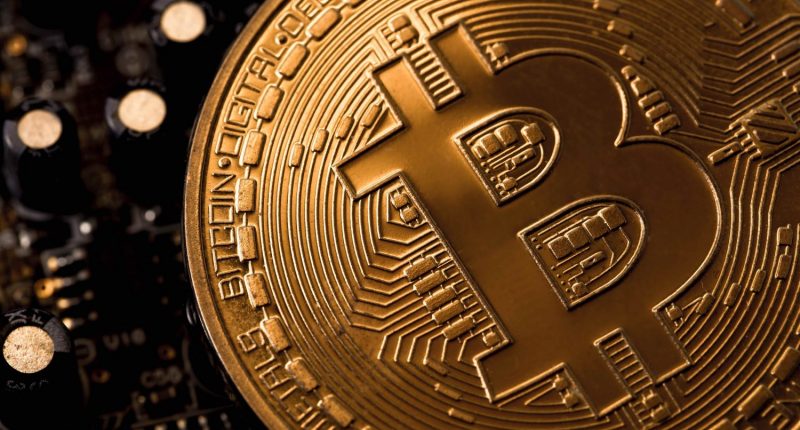The most powerful tool that the government uses to influence the economy is controlling the supply of money. The government wants to have complete authority over the economy because they benefit politically from it.
The government borrows money from banks to create new money. Therefore, to generate fiscal stimulus, the government is creating more future debt that needs to be cleared. Fortunately, the government has the benefit of devaluing the currency that is denominating the debt. But it becomes a problem for us; you might be trying to save the cash as a store of value. Even if you have deposited your money in an interest-bearing account, the devaluation of your savings is inevitable.
When it is said that governments are afraid of Bitcoins, it means explicitly the cryptocurrency Bitcoin and not the blockchain technology behind it. Various governments and banks have appreciated the mechanism of blockchain technology. They are even eager to include it in the system to advance in revamping operational efficiency. Some governments have even launched their cryptocurrency to make the process of electronic transfer easier. Since blockchain technology records every transaction in the public ledger, the government plans to attach it to make digital transfers traceable and taxable. You can check profitable trading signals of Bitcoin from bitcoinloophole.io.
However, unless the currency is left decentralized and the supply is not mathematically limited, it will only be a mere technological up-gradation of the fiat currency. Cryptocurrency owned by the government will not solve the problem of future debt. The government will still have the power to produce more of it, and it has to remain backed by debt. These cryptocurrencies will not protect the people from inflation and default risks, which are the fiat’s main issues.
The severe financial crisis faced by the people worldwide shook their confidence. Bitcoin emerged from the ashes of the collapsed banking system and provided an alternative for the users to take authority over their own money. Anyone with access to the internet can purchase bitcoin and securely save their wealth. The payment network works peer-to-peer. It’s a decentralized cryptocurrency that cannot be tampered with by a third party, critically the government.
How Fiat Currencies Gained Trust?
The government’s conventional currencies are called ‘fiat.’ These currencies are valued because the government has stated so. Over time, people have realized that this promise means nothing because fiat currencies do not support any tangible assets. You will never be able to exchange the money with the government for a bar of gold or a can of beans. The only reason fiat currencies have developed trust within people is the government’s credit that has issued them. If you want to buy gold or beans, you need to pay the fiat currency to a person willing to sell them.
Why control matter?
The government completely controls fiat currencies. They bestow central banks’ responsibility to issue or destroy the money by monetary policy to influence the economy. The government also dictates how these currencies can be transferred to be tracked, and it can collect taxes on them. It makes clear who can benefit from this movement, and it also helps in tracing criminal activities.
How Bitcoin helps?
Bitcoin users can free themselves from the existing banking system. Bitcoins do not have any physical existence. They are created in cyberspace by “miners.” Bitcoins are not printed on paper or engraved on metals, instead produced by solving complex algorithms that serve as verification of bitcoin transactions made worldwide. When miners successfully solve a block, they are rewarded with this cyber currency, which can only be stored digitally and moves between buyers and sellers, eliminating the need for an intermediary. On a smaller scale, the same concept applies to airlines’ reward miles. They allow travelers to use the miles to purchase plane tickets, hotel rooms, and other items. All are using virtual currency, airline miles.
If Bitcoin gets adopted widely, the structure of the entire banking system will fall. This might seem a great alternative in light of the situations when the banking industry went corrupt. Coinage always has two sides. If there are no banks, when your mortgage payment gets hacked, there will be no one to provide you with a solution. You have no way to earn interest on your savings. Whom will you ask for assistance when a transfer of assets is not complete, or you face a technical glitch?
Even though the financial crisis created a bad reputation in the banking system in people’s minds, these institutions have proved that they can sincerely carry out trustworthy asset transfers and maintain the records associated with them. But they charge fees for providing such services.
However, the fees are channeled to generate revenue and provide many jobs across the banking industry globally. Removing the banking system would also mean that those jobs disappear, so does the tax revenues collected from the banks and employees working there. The whole money transfer business will have a new virtual form.
Why is Bitcoin scary for governments?
- Unstoppable
Initially, Bitcoin was given the form of a scam by people who stood against it. But even after a decade, bitcoin is still here and making headlines. It is always a long way until a majority of the population adopts bitcoin. Each day, new companies and services are getting on board, making Bitcoins acceptable as a payment method. Digital currency is here to stay, and anyone hoping that it would disappear is not getting their wish granted.
The main concern that governments and financial authorities have with Bitcoin is the deprivation of control. They have yet to figure out a way to levy a tax on Bitcoin or any other cryptocurrencies. The government cannot track the transactions or profits made from them. Taxation being the principal source of state revenue, you can understand why the government does not encourage the concept.
The two founding features of Bitcoin that provide strength and popularity to this cryptocurrency are the absence of centralized authority and blockchain technology (distributed ledger). It creates a secure network, letting users enjoy anonymity. But when analyzed from a government’s perspective, this is an arena it can’t intervene in and cannot regulate. For the authorities, no regulation means no control and no revenue.
Furthermore, Bitcoin is a peer-to-peer system that does not require any middleman or central authority to look after the transfers. Who is buying Bitcoins from whom and what kind of profits are being made stays completely obscure from the sources.
- Acts as a Lifeline
For countries like Venezuela that have experienced hyperinflation at a rate of 2,349% and rising, even the essential goods and services are not available to many people. Reports prove how they are surviving on Bitcoins. They use this cryptocurrency to purchase goods online, which are couriered from abroad. This country is an example of how the government and traditional financial institutions have failed the citizens. However, instead of finding an answer to the financial crisis, they have tried to crack down on the country’s miners.
- Community Regulation
Governments showing opposition to cryptocurrencies is a two-headed beast. It is disliked because it stays beyond their control. But it also projects that they have genuine concerns about the protection of citizens and people interested in investing in unfavorable situations.
- Crime Concerns
All that being said, it is essential to note that not all government concerns are unjustified. It has founded on the feature of untraceable financial transactions; illicit activities are unavoidable. Some crimes might aggravate such a system as drug trafficking, terrorism, money laundering, and tax evasions. These can harm the rest of society.
Keeping aside the probability of a wide range of illicit activities that have grabbed the headlines painting it in a wrong way, we have to remember how it can work to solve the issues conventional systems have given rise to. The central bank altering the money supply has caused recessions and unemployment over and over again. The global banking system is thriving on profiteering and corruption, putting the welfare of people at stake.
Trying your luck in the new currency is no harm; remember that you trust a very complex system with your money. You might not have complete knowledge about this market; you are dealing with people you know nothing about and entering into an environment where the legal recourse is minimal.




